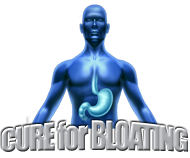The Importance Of Oral Health On Digestion
The Importance Of Oral Health On Digestion
How can there be a strong correlation between oral health and diet-related conditions such as indigestion, irritable bowel syndrome (IBS) or simply gas and bloating? Although we all have the choice to eat the foods that are most appealing to us, our selection becomes limited with the condition of our teeth and gums. As we get older our gums recede, teeth become loose and sensitive, and eventually we lose them. This effects what we choose to eat. Evidently, study’s have shown that the consequence of inferior masticatory (chewing) efficiency alters food choice and therefore can increase the risk of heart disease, atherosclerosis and digestive ailments.
Besides all your preparatory work in the kitchen, digestion begins in the mouth and the teeth play a primary role. They grind and crush the food up so that the digestive enzymes have easier access to break down the food chemically. Food should be thoroughly masticated (chewed) and with the help of the tongue, mixed with saliva, which contains many components pertinent to our oral health, including the enzymes to start the break down of carbohydrates, fats and antibacterial agents that protect us from pathogenic bacteria. Digestion becomes compromised when the teeth can’t perform their job. If you aren’t able to chew your food, you will either experience gas, pain and bloating, as most of the food will pass through your upper gastrointestinal tract unchanged and not absorbed, which then goes onto feed and expand the growth of fungi and bacteria in your large intestine or you will alter your food choice to something that doesn’t require chewing, something probably less nutritious, that could also be at the cause of your digestive aliments.
Foods that Support Oral Health
Sea Vegetables are rich sources of minerals, especially calcium! Calcium is the main mineral found in the enamel and dentin of your teeth. It is important that you get adequate amounts of calcium through your diet as supplements aren’t always so easily absorbed into the body. When taking supplements, there also lies the risk of consuming too much. High calcium intake can interfere with the absorption of other minerals such as zinc and iron and can be a factor in developing kidney stones. Unless you have good reason to be taking therapeutic doses of calcium, try to consume it through food!
Apples are a great source of vitamin C. Vitamin C is necessary for growth and repair processes in the body. It is used to form and heal tissues strengthening your gums and it helps maintain the structure of your bones and teeth. Apples contain many phytonutrients that work with Vitamin C to ensure its beneficial role in the body. Make sure you eat raw, organically grown apples for maximum nutrients. Also remember the skin contains the majority of the nutrients found in the apple, so leave the peel on!
To find out more information on how to maintain oral health, buy our eBook “The Ultimate Cure for Bloating and other stomach-related conditions” today!
[wp_eStore_fancy1 id=1]


